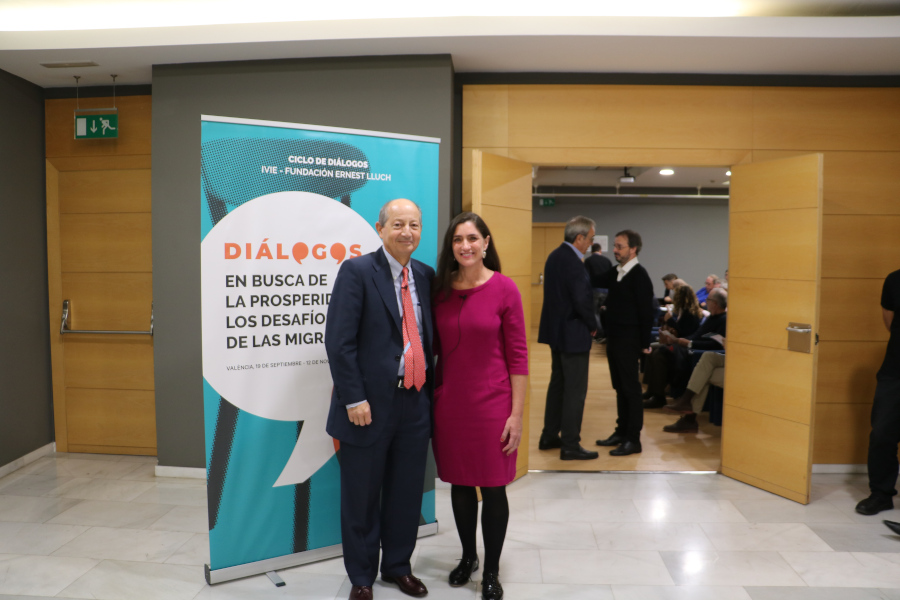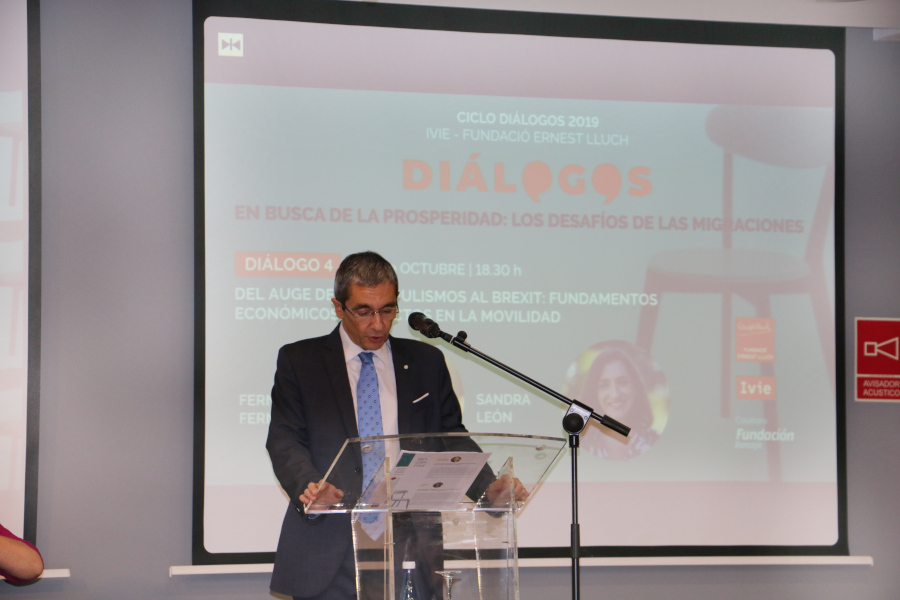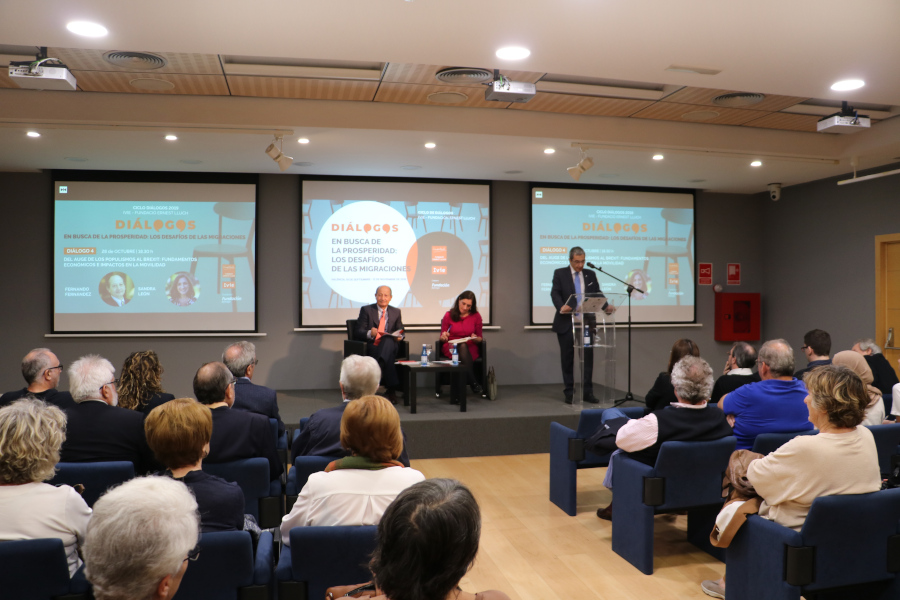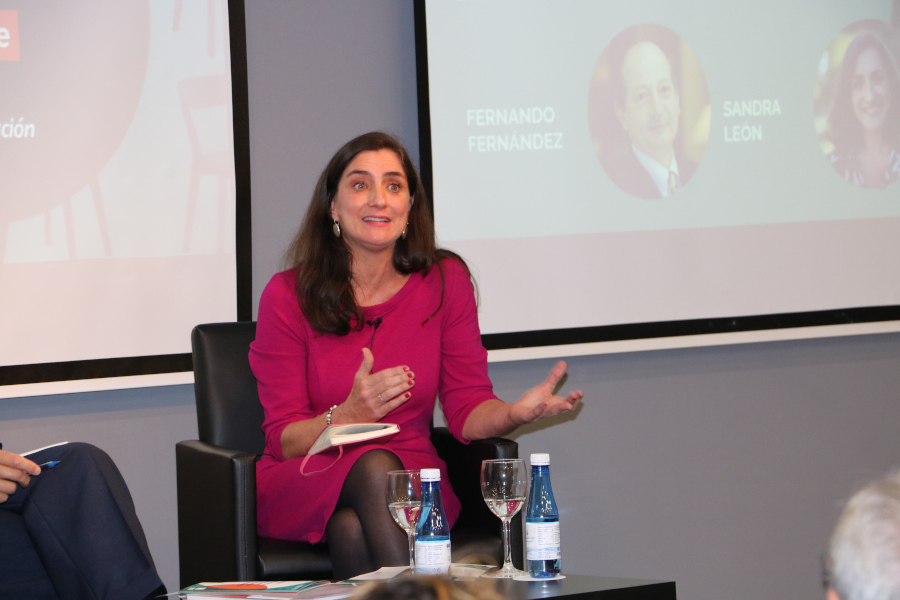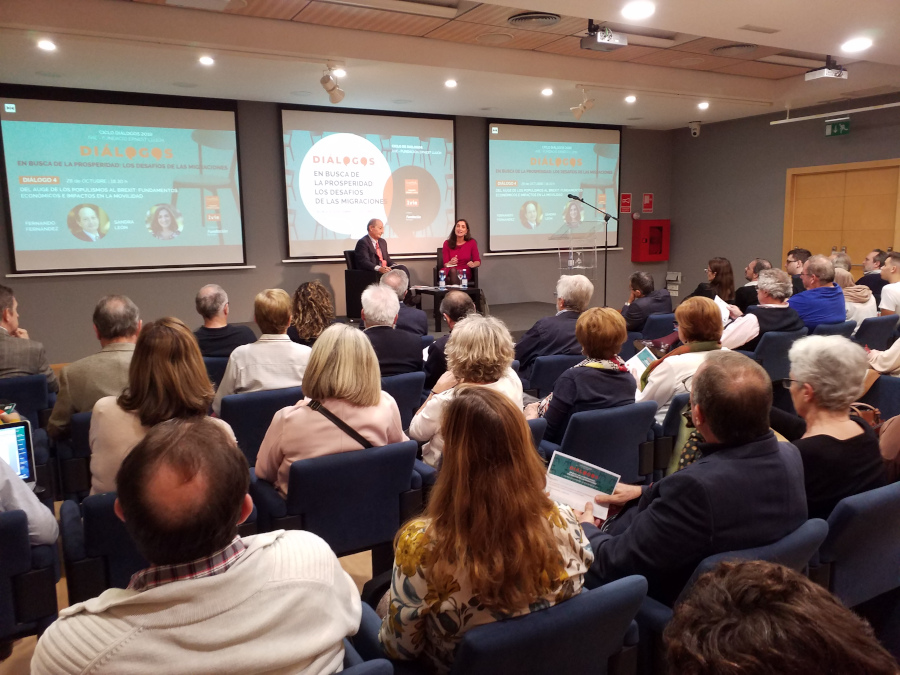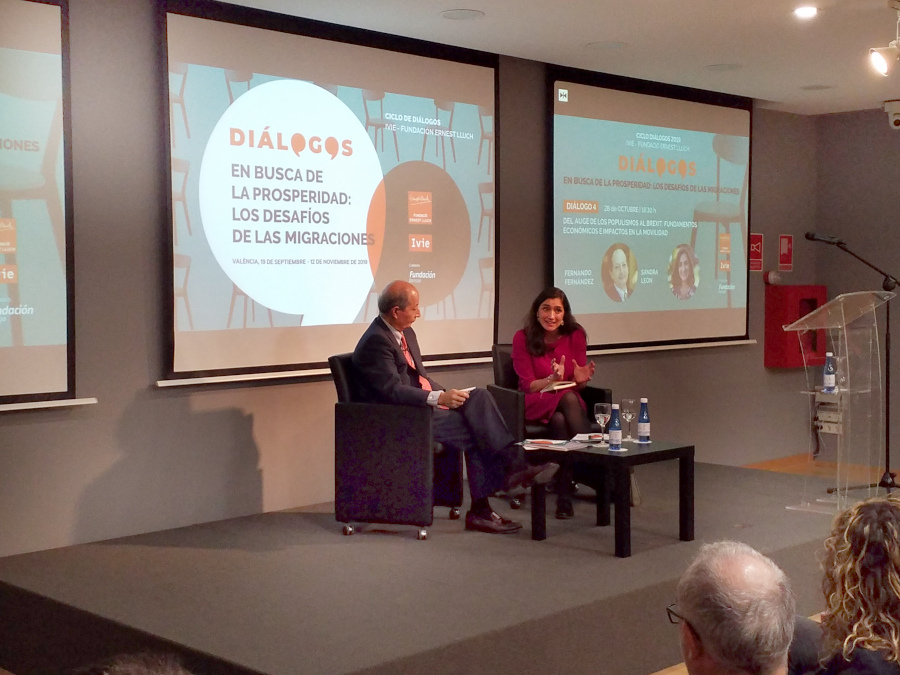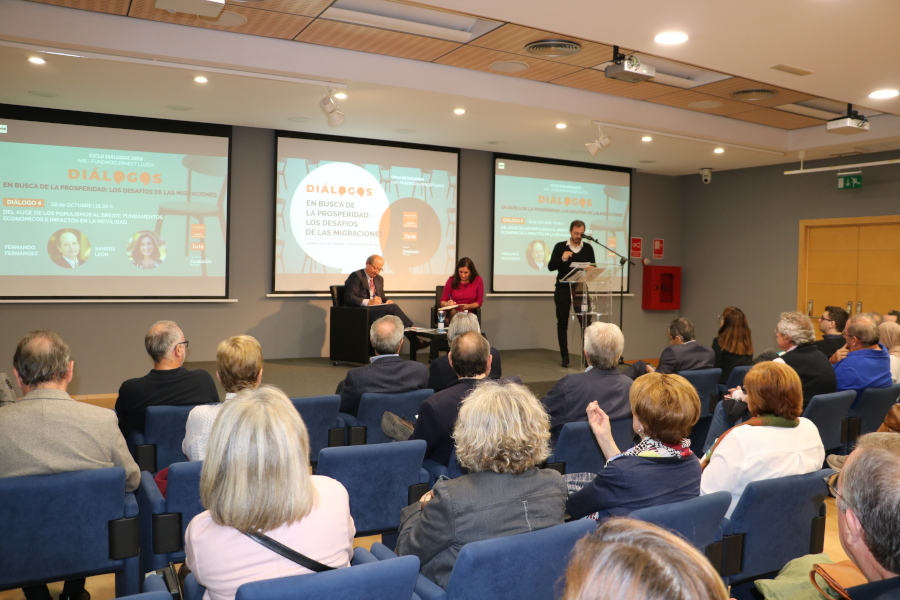Esta web utiliza cookies para que podamos ofrecerte la mejor experiencia de usuario posible. La información de las cookies se almacena en tu navegador y realiza funciones tales como reconocerte cuando vuelves a nuestra web o ayudar a nuestro equipo a comprender qué secciones de la web encuentras más interesantes y útiles.
News
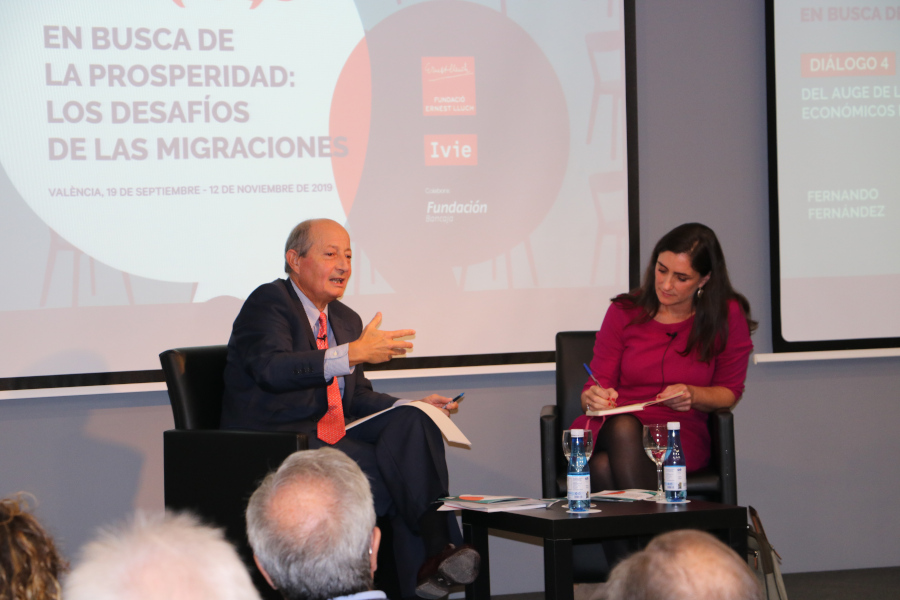
With Brexit we learn from a major mistake so as not to repeat it, at the cost of a small degree of pain
In the fourth dialogue in the Ernest Lluch Foundation-Ivie series, “The quest for prosperity: challenges of migration”, Sandra León and Fernando Fernández explain the reasons behind the rise of populism and xenophobia in Europe and their role in Brexit
The Ernest Lluch Foundation and the Ivie, in collaboration with the Bancaja Foundation, recently held the fourth dialogue in the series “The quest for prosperity: the challenges of migration”. The talk explored the origins of the increase in populism, xenophobia and disaffection in Europe, their economic causes and their role in the UK’s pending departure from the EU.
Sandra León, professor and researcher at the Carlos III University in Madrid, and Fernando Fernández, international consultant and professor of economics and finance at the IE Business School, led an animated debate in which opinions both coincided and collided. Sandra León indicated that while populism has a cultural base, it is also driven by economic factors, mainly the fact that the middle classes want to recover the economic status lost when the social elevator was damaged by the crisis. She also added a third, political, reason, arising from the tensions in democracy when political power is constrained by economic power.
For Fernando Fernández, populism is the reaction to an economy that is no longer local but globalized and an uncertainty that generates distrust in people. He believes that, to avoid populist movements, Europe needs to return to pursuing economic growth. Social mobility implies that some win and others lose, but the main thing is to generate enough growth to account for those who have fallen along the way.
Sandra León insisted, however, that growth cannot be pursued at all costs, but needs to be inclusive so that no one is left behind. Pointing to the fact that the economic transition has been more painful in some countries than in others thanks to the kind of public policies, for instance, in education. “In countries whose educational systems are more open to the lower and middle classes, populist values have taken less hold than in countries with more segregated systems.”
Dialogue 4, titled From the rise of populism to Brexit: economic fundamentals and impacts on mobility, also addressed the issue of growing disaffection in EU member states, exemplified by the UK’s pending departure. Fernando Fernández argued that “we are creating a non-existent political animal and we want countries to give up sovereignty just as the EU loses political and economic clout in the world. We need to legitimize the decisions of the EU, build a Europe that has a kind of visibility that it does not yet have, that is understandable – its structure is too complex – and that allows citizens to identify with a common project.”
Both Fernández and León agreed in pointing to Brexit as an initially hypothetical situation, that has, however, signaled risks that will dampen aspirations to other exits. “With Brexit we learn from a major mistake so as not to repeat it, at the cost of a small degree of pain,” said the IE Business School professor.


